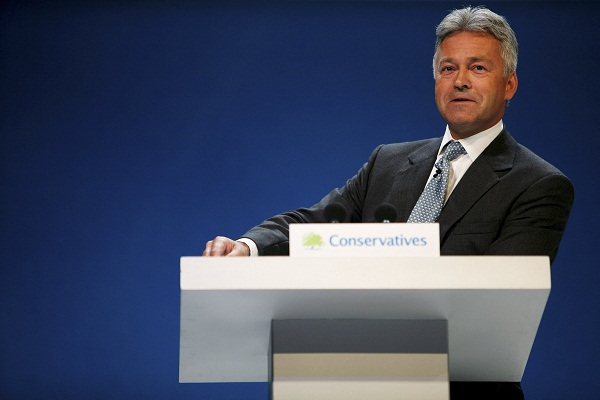It takes a courageous individual to brave the threats to their person that public utterances on gender seem to attract these days. Undeterred, Alan Duncan is among them. (This is a man who once made a citizen’s arrest after protestors flung paint bombs at the Tory Party chair, after all). Last week the international development minister reportedly cautioned the prime minister against promoting ‘token women’ in his next cabinet reshuffle.
Duncan rests his argument, in part, on his experiences as the Conservative Party’s first openly gay MP, telling the Financial Times: ‘I never wanted to be a token gay and now things have progressed so there is no need for it. Nobody should want to be a token woman; it should all be based on merit.’ Setting aside the claim that gay people enjoy the same free and unfettered opportunities as straight ones, Duncan is wrong to liken his experiences as a gay man seeking advancement in British politics to those of women doing likewise. Marked differences between the two present significant barriers to the latter group proving their worth in the manner the minister advocates.
Take appearances. Gay men can conceal their sexuality if they judge it will stymie their prospects. Duncan himself won his Westminster seat in 1992 but did not come out as gay until 2002 – by which time he’d long since advanced to the shadow frontbench. While deplorable that anyone should feel compelled to hide so central an aspect of their identity for fear it could harm their career, it is less easy for a woman to physically conceal her gender in order to project a face that fits.
And undisguised womanhood remains a problem. Gender generally trumps other key markers of identity – such as age, race, sexual orientation, class and dis/ability – when it comes to getting ahead (men) or falling behind (women and transgendered people). There are many reasons for this, not least that according to the UN women still assume the lion’s share of housework and childcare, inevitably reducing their available time and energy for, say, running for election. Since British women earn almost 10 per cent less than men, the average single or married woman will find it harder to employ domestic help, so freeing them to pursue their political ambitions, than their gay male counterparts. And let’s not forget the stubborn stereotype of the ‘caring woman’, evoked most recently by UKIP’s Stuart Wheeler, lumping yet further societal pressure on mothers in particular to check their ambition.
Power begets power – hence there are three and a half male MPs for every female one, and 80 per cent of cabinet ministers are men. ‘Tokenism’, say proponents, provides under-represented individuals with role models they are encouraged to emulate. Men have plenty of these in British politics, regardless of sexuality. As yet, women do not.
It is sensible to aim for cabinet seats awarded on merit alone. But Duncan must recognise that some under-represented groups may find it simpler to demonstrate their merits than others.






Comments